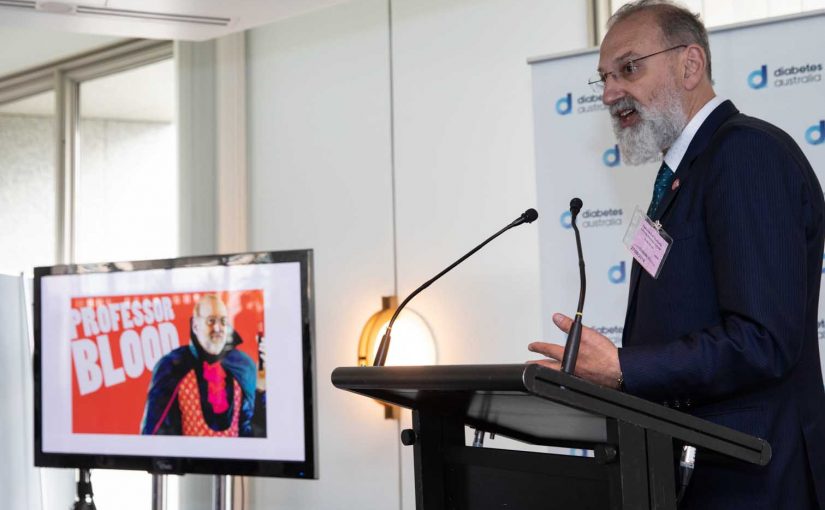Chemical pathology involves analysis of bodily fluids for diagnostic and health monitoring purposes. Chemical pathologists are medical doctors, with at least 13 years of training, who specialise in balancing clinical needs and laboratory capabilities. They optimise the use of biochemical laboratory tests to diagnose disease and to manage patients.
We chatted with Dr Ken Sikaris on his varied roles: chemical pathologist, pathology informatician and low carb guru.
Why did you choose Chemical Pathology?
I think it chose me! A convincing career advisor diverted me from my aspirations for Architecture to a Science degree at Melbourne University. I then gradually shifted my course interests from physics and chemistry, to physiology and biochemistry.
When I finished my first-class honours degree in biochemistry I had the choice to transfer to Medicine, but I found my way back to the lab – to chemical pathology which I really enjoyed – where I completed a further five years to attain my medical degree.
What does a typical day look like for you?
In the past it was scanning the hundreds of abnormal results for clinical consistency and dealing with the many challenges that try to undermine the quality of our investigations.
Today, I am immersed in information technology and government committees – because it seems to me that these are the two most important considerations for optimising health care including chemical pathology.
What can our blood tell us about our general health and wellness?
Blood carries chemical information about what the cells of the body are up to. A good clinician can assess your health from the outside, while blood tests (and diagnostic imaging) tell us much more about the inside.
Whether it’s pregnancy, a heart attack or the risk of an early prostate cancer, blood tests have added sensitivity to estimating disease. Similarly, tests can tell you if you are deviating from optimal health towards an increased risk of common diseases like diabetes.
What is your most memorable moment working in pathology?
I remember urgently contacting a patient (whose doctor wasn’t contactable) with the news that his chest pain was probably a heart attack and we should organise an urgent transfer to hospital. He said that was impossible, as he ran an art gallery and had an exhibition opening in the morning.
I emphasised the risks and made the nearby hospital aware he should be coming. I heard nothing more for a few weeks.
The memorable moment was when I received a letter from the art gallery director thanking me for my vigilance and persistence as he had suffered cardiac arrest that night, but while in the hospital Cardiac Care Unit rather than at home.
Pathology, and pathologists, are perceived as a hidden part of the health system, and it’s reassuring for us to be directly reminded, and thanked, for the life-saving work we do every day.
What are the most common conditions that you deal with?
Obesity, pre-diabetes and diabetes. This is the spectrum of the Western epidemic that affects virtually every organ of the body including liver, heart and kidney. Forgive the pun, but they are the elephant in the room of healthcare.
Tell us about your role as Professor Blood in “That Sugar Film” – how did it change your life personally and professionally?
It was with significant reluctance that a laboratory recluse agrees to appear on the big screen. I didn’t even notice my caricature until I heard my daughter’s shrieks of laughter.
The film became the most successful documentary in Australian film history and I have received appreciation around my involvement.
It seems to have helped many people on their health journey (including my 15 kg weight loss). I have several YouTube lectures that together are approaching a quarter of a million views that have also helped people gain control of their health.
It seems certain to me that pathologists have something broader to offer in healthcare than just an advice on individual tests, and my career is being shaped by this need more than my intention.
What advice would you give to students or young people considering pathology careers?
I consider my career successful, but it wasn’t planned. If there is anything to learn from my example it is to pursue your vocational interests with all the energy that stems from passion, as well as the courage of facing the unknown future.
The understanding of the mechanisms of disease (i.e. pathology) best suits the individual with a passion for science as well as a passion for healthcare.

